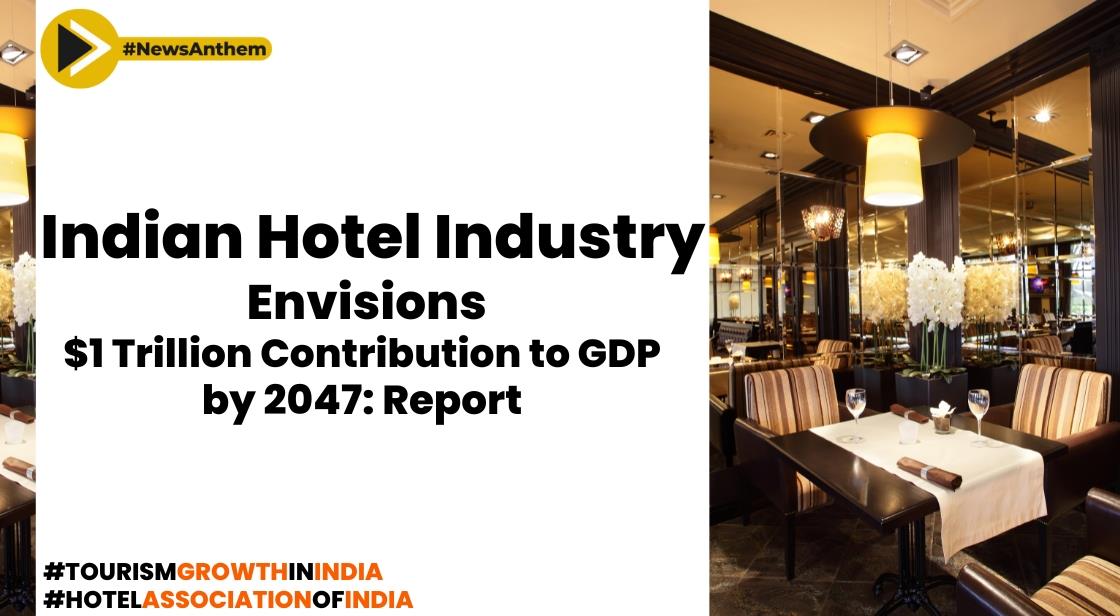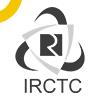Indian Hotel Industry Envisions $1 Trillion Contribution to GDP by 2047: Report

News Synopsis
Indian Hotel Industry's Ambitious Vision A groundbreaking study by the Hotel Association of India (HAI) and Benori Knowledge reveals a transformative vision for the Indian hotel industry.
By 2047, this dynamic sector is projected to directly contribute a staggering $1 trillion to India's GDP. This ambitious projection is underpinned by a surge in domestic tourism and international arrivals, marking a significant paradigm shift in India's economic landscape.
Rapid Growth Trajectory:
From $40 Billion to $1 Trillion Currently, the hotel industry's direct GDP contribution stands at $40 billion as of 2022. The study forecasts an impressive escalation to $68 billion by 2027, driven by a multifaceted growth strategy.
As the industry's footprint expands beyond metropolitan hubs, including second- and third-tier cities and rural locales, the trajectory points towards an astonishing $1 trillion direct GDP contribution by 2047.
Holistic Approach:
A Collaborative Economic Ecosystem The Vision 2047 report takes into account the comprehensive impact of the hotel industry, embracing not only accommodation but also interconnected business verticals such as food and beverage, salons, and spas.
While expansion projections transcend scenario-based estimations, the industry's potential is bolstered by a supportive economic ecosystem. Rising GDP growth, enhanced income levels, and an upsurge in both domestic and international visitor arrivals fortify the envisioned gains.
Illuminating Tourism's Ascension
The study charts a remarkable trajectory for the Indian tourism landscape. Domestic tourist visits are set to surge from 677 million in 2021 to a projected 1.5 billion by 2030, with even grander estimates reaching 15 billion by 2047.
On the international front, the report anticipates a steady ascent, forecasting 1.5 million arrivals in 2021, 15 million by 2024, and an impressive 100 million by 2047.
The Catalysts for Transformation
The Vision 2047 report highlights pivotal factors fueling this transformative journey. Technological advancements, environmental and social sustainability, regulatory support, and macroeconomic variables are poised to be instrumental drivers.
Hotel Association of India HAI Secretary General M P Bezbaruah underscores their significance, emphasizing the industry's commitment to innovation, ecological responsibility, and collaboration with policymakers.
Charting a Future Aligned with Sustainability
The Indian hotel industry's evolution is intrinsically tied to sustainable practices. As it forges ahead, a commitment to technology-driven efficiency, ecological preservation, and societal well-being will remain paramount.
The sector's embrace of these principles alongside responsive regulations and economic dynamics heralds an era of growth that will redefine India's GDP landscape.
Here are some additional details related to this news:
-
The hotel industry is one of the largest and fastest-growing sectors in the Indian economy.
-
The sector directly employs over 40 million people and indirectly supports millions more.
-
The growth of the hotel industry is being driven by a number of factors, including:
-
The rise in disposable incomes of Indians
-
The growing popularity of tourism in India
-
The increasing number of business travelers
-
The development of new infrastructure, such as airports and highways
-
-
The hotel industry is expected to play a major role in the development of the Indian economy in the coming years.
Conclusion
The Indian hotel industry's visionary trajectory toward a $1 trillion GDP contribution by 2047 is underpinned by strategic expansion, sustainable practices, and a holistic approach to economic collaboration.
With technological innovation and responsible growth at its core, this industry is set to leave an indelible mark on India's evolving economic narrative.
You May Like









